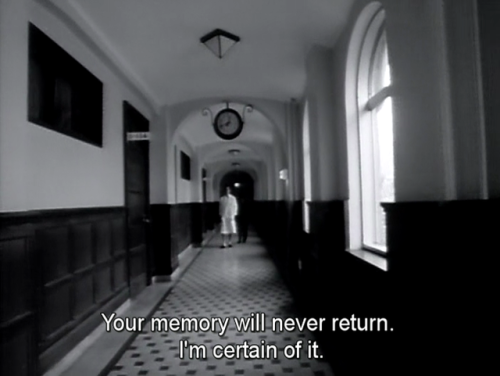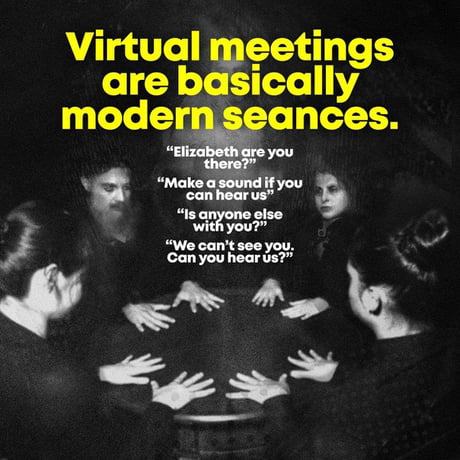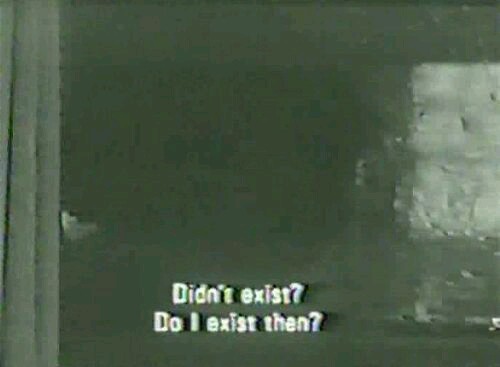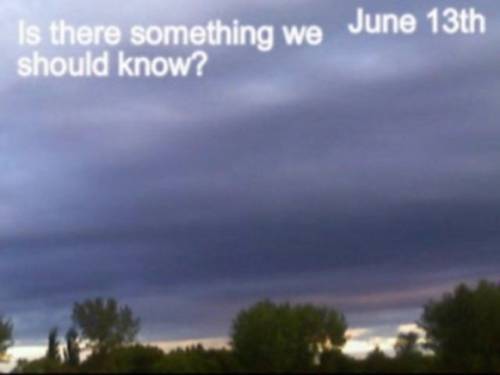
~The Haunted Web~
the web speaks to us as ghost stories speak to us: of memory and time.

In the dissociative nonfiction collection Ghosts of My Life, Mark Fisher writes that time has stopped.
When he first heard Amy Winehouse's song 'Valerie', his instinctive guess was that it was an 1960s original that the Zutons had then covered (in fact, the Zutons' 2006 version came first). And when he first saw the Arctic Monkeys video for 'I Bet You Look Good On The Dancefloor', he again assumed it was a clip from the past (and the lyrical reference to "1984" an evocation of the future). He writes about the present moment's popular culture as characterised by this
I don't think we can explain what Fisher describes without looking at the web. I learned from Simon Reynolds that in the 70s, getting old music was a near impossibility; instead, one was
How strange that we are here, in the future, surfing the digital cyberhighway, becoming cyborg as our technology forms such an integral part of our bodies and psyche - and yet our sense of the future feeling "futurey" is gone - because our access to every tune, every era, every evocation of memory and moment, is
My machine pipes Patrick Cowley, then the Orb, then back to Noel Coward, and all the way forward to 100 gecs;

Much of my day is spent sitting still, looking at a pane of black glass hallucinating vividly; my international friends are here-and-yet-not-here. Conversations held silently, like wandering around an empty art gallery. We drift through walls, from room to room - our presence unobserved.
The modern interfaces of the internet are designed to distract us from this strangeness; everything is sleek and clean. One of my earliest, clearest memories of computing was how uncomfortable it made me. These places which were not places. The sense of unreality was far more salient. The digibeaches and flooding Miami malls recreated with loving irony in vaporwave are interpreted in popular culture as commentary on commercialism, nostalgia for the optimism of the 90s, or the garish aesthetic joy of retro. What seems to be missing is that these landscapes felt
We are long past the era where we pretended each webpage was a kind of room. The early internet used the language of physical space - from "chatroom" to "homepage" - as if we weren't quite ready to relate to the digital world as pages and data. I remember vividly the sense of relating to the web as a series of places. My early pagan spirituality was built from pixels and Times New Roman in little hand-coded cottages with a "Garden" of herbal remedies and a "Library" of articles (sometimes, delightfully, with a little bookshelf you could click). To come across them now is like wandering the remnants of a silent city; those digi-homes are haunted spaces, long abandoned; diary entries from long-vanished hands, photographs left behind, memories in empty rooms. I think about the pagan prayer to open the circle and part the veil:

The web is a necropolis, where the dead will one day outnumber the living. In my years online, people who have been part of my daily life have suddenly, unaccountably winked out of existance. Disconnected or died? or, like ghosts on a stone tape, merely overwiped. On the web we are ageless; our bodies may decay, but text typed at 14 looks much the same typed at 24 or 54.

The web is a place between the living and the dead - where we are souls but not bodies. Where we create ourselves through words, and we are imagined to look something like our avatars - no flesh here, just a 90x90 and flatness, reduced to colour and text -
i adore tumblr's playful xenogenders: raingender, deergender, stargender. they speak to a deep truth of what it is to live online. in the physical world, we signal gender through our bodies and clothes and mannerisms; but what is it to be "clothed" or "bodied" online? What is an online "mannerism"? Instead, we create our presence from paper. I think it is deeply true for someone whose sideblog is
Only online could we begin to articulate ideas like voidgender, glitchgender, ghostgender - people experiencing themselves as entities and presences. I think of myself as sonic;
I could drift through lists of xenogenders all day, marvelling in the imagined sensory delights and political possibilities of living online: i am a star, i am a wind, i am "a gender that is spring-like, flowery, lightly frosted, thin, and calming"; i am "a gender that is flamboyant, dark, cool, and wintry. It is gloomy, calming, and freezing as well". What i am not is a thing trapped by my flesh, confined merely to the sensations i can encounter in the world. There's something ghostly about that: leaving the body behind, to become instead a spectre.

When Mark Fisher writes about the eerie, he starts from pop culture: M.R. James, Sapphire and Steel, Picnic at Hanging Rock.
When he looks at The Shining, he doesn't see a haunted hotel - he sees a happening; he sees things that are not immediately nameable as 'ghosts', things the characters never identify as a monster called 'ghost' - there is no suggestion, for example, that they could be exorcised or banished. They're just
So what do I imagine the shape of the internet to be? Not wires, not webpages, not people sitting at desks: I think about the Overlook, the abstractions of ghostliness; I think about formless things,
I think about an absent presence that follows me when I walk down the street, still musing on what happened online earlier that day - a whole reality that only ever exists within my skull. It makes things occur, but it has no clear direction - no management, no sole mover, no first cause - and yet it
I think about a ghost's compulsive looping - over and over and over again, I run then scream and I fall, I run then scream and I fall//as I lie there in stillness clicking refresh, clicking refresh, clicking refresh. I have not left this house in weeks. perhaps I am no longer able to. perhaps I give excuses to myself for why I am inside (clicking refresh, clicking refesh) to hide from myself the truth that
eerie feelings are the natural state of the internet: where did this come from? why is it here? who did this?
how do we make it stop?
Bibliography
Ghosts of My Life - Mark Fisher
// The Weird and the Eerie - Mark Fisher
//Retromania - Simon Reynolds
// Sapphire and Steel: Assignment 4
//Selected Memories of the Haunted Ballroom - the Caretaker
